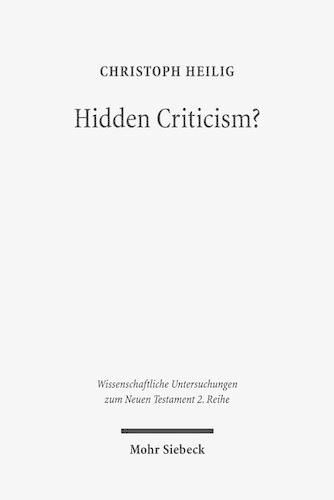Readings Newsletter
Become a Readings Member to make your shopping experience even easier.
Sign in or sign up for free!
You’re not far away from qualifying for FREE standard shipping within Australia
You’ve qualified for FREE standard shipping within Australia
The cart is loading…






Paul has been regarded as being uncritical of the Roman Empire for a long time, not least because of his apparent call to obey the state in Rom 13:1-7. However, recent scholarship has questioned this assumption by pointing to hidden criticism in the letters of the apostle. But how can we decide, in a methodologically sound way, whether such a counter-imperial message lies beneath the surface of the text? On the basis of insights from the philosophy of science, Christoph Heilig suggests several analytical steps for examining this paradigm. He concludes that the hypothesis that we can identify critical echoes of the Roman Empire in Paul’s letters needs to be modified for it to be maintained. In particular, concern over the danger of overt criticism and subsequent persecution do not sufficiently justify this interpretative hypothesis. Nevertheless, Heilig concludes that the search for a counter-imperial subtext in Paul could turn out to be heuristically fruitful so long as the limitations of the approach are heeded. Hence, a re-evaluation of Pauline passages in light of Paul’s engagement with ideas from his Roman environment is encouraged.
$9.00 standard shipping within Australia
FREE standard shipping within Australia for orders over $100.00
Express & International shipping calculated at checkout
Paul has been regarded as being uncritical of the Roman Empire for a long time, not least because of his apparent call to obey the state in Rom 13:1-7. However, recent scholarship has questioned this assumption by pointing to hidden criticism in the letters of the apostle. But how can we decide, in a methodologically sound way, whether such a counter-imperial message lies beneath the surface of the text? On the basis of insights from the philosophy of science, Christoph Heilig suggests several analytical steps for examining this paradigm. He concludes that the hypothesis that we can identify critical echoes of the Roman Empire in Paul’s letters needs to be modified for it to be maintained. In particular, concern over the danger of overt criticism and subsequent persecution do not sufficiently justify this interpretative hypothesis. Nevertheless, Heilig concludes that the search for a counter-imperial subtext in Paul could turn out to be heuristically fruitful so long as the limitations of the approach are heeded. Hence, a re-evaluation of Pauline passages in light of Paul’s engagement with ideas from his Roman environment is encouraged.